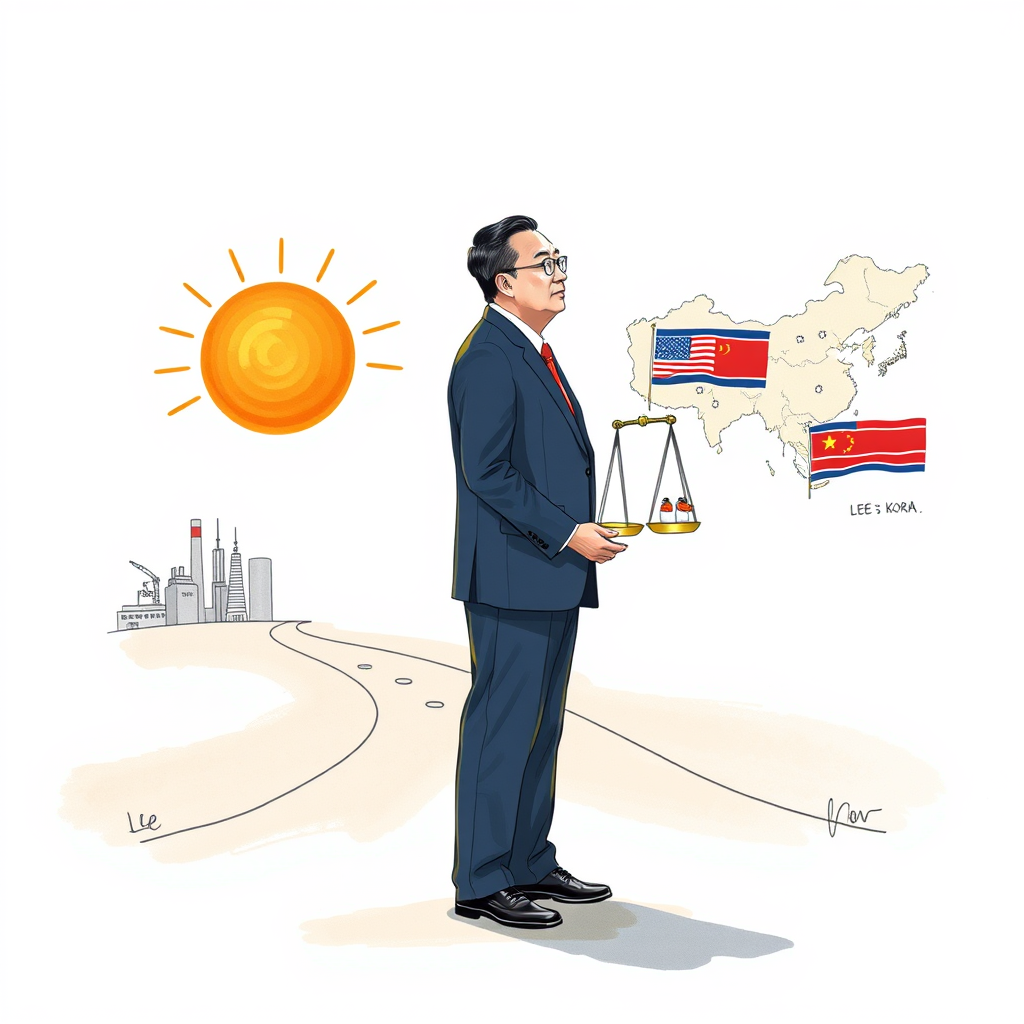South Korea’s New Leader Signals Dramatic Shift

South Korea has decisively shifted leftward with the election of Lee Jae-myung, marking a potential turning point for the nation’s domestic and foreign policy. Lee’s victory over Kim Moon Soo of the People Power Party closes a turbulent chapter defined by the brief and dramatic tenure of former President Yoon Suk-yeol, whose actions led to impeachment and removal from office. The scale of Lee’s win, coupled with his Democratic Party of Korea’s existing parliamentary majority extending to at least 2028, grants him a rare and powerful mandate to govern without the usual legislative gridlock.
While campaigning on a centrist platform to attract broader support, Lee is now poised to implement a progressive agenda. He’s a populist leader forged by years as a labor and human rights lawyer, advocating for a stronger state role in wealth redistribution and curbing the influence of South Korea’s powerful conglomerates, known as chaebols. Recent signals suggesting pro-market policies – aiming to boost the KOSPI and attract MSCI developed market inclusion – appear to be a strategic move to restore business and consumer confidence shaken by the recent political instability. While sweeping chaebol reform may face resistance, increased social welfare spending, higher taxes on corporations and the wealthy, and stricter business oversight are anticipated.
However, the transition won’t be immediate. Lee officially takes office on June 4 under by-election rules, and forming a cabinet and enacting legislation will take months. A detailed policy platform isn’t expected until mid-August, with the first proposed budget arriving in September. His initial focus will be stabilizing an economy grappling with weak domestic demand, declining exports, and the looming threat of increased U.S. tariffs.
The expiring 90-day tariff reprieve from the Trump administration, set to lapse on July 9, presents an immediate challenge. Lee is cautiously exploring a deadline extension to assess trade deals negotiated by other nations, but a failure to reach a new agreement could significantly hinder South Korea’s economic growth, given the U.S. is its second-largest export market after China.
Foreign policy will also see a distinct shift. Lee pledges to maintain existing alliances, but his record suggests a cooler relationship with Washington and Tokyo, and a move towards closer ties with Beijing and Pyongyang. He has criticized previous overtures to Japan as overly deferential and is skeptical of deeper trilateral security cooperation. A warmer approach to China, welcomed by Beijing, risks further straining relations with the U.S.
Despite the challenges, Lee has expressed openness to resuming talks with North Korea, and could potentially find common ground with a revived Trump administration’s engagement with Kim Jong-un. However, Kim’s rejection of reunification and growing ties with Russia temper expectations for diplomatic breakthroughs.
Lee’s election represents a significant departure after three years of political division and crisis. He possesses the mandate, parliamentary support, and political will to enact substantial change. Whether he can deliver on his ambitious agenda remains to be seen, but his presidency promises to be the most cohesive and potentially transformative era in South Korean politics in years, reshaping the nation’s trajectory both domestically and on the world stage. It’s a bold gamble, and the coming years will reveal whether Lee Jae-myung can successfully navigate the complex challenges and deliver on the promise of a revitalized South Korea.